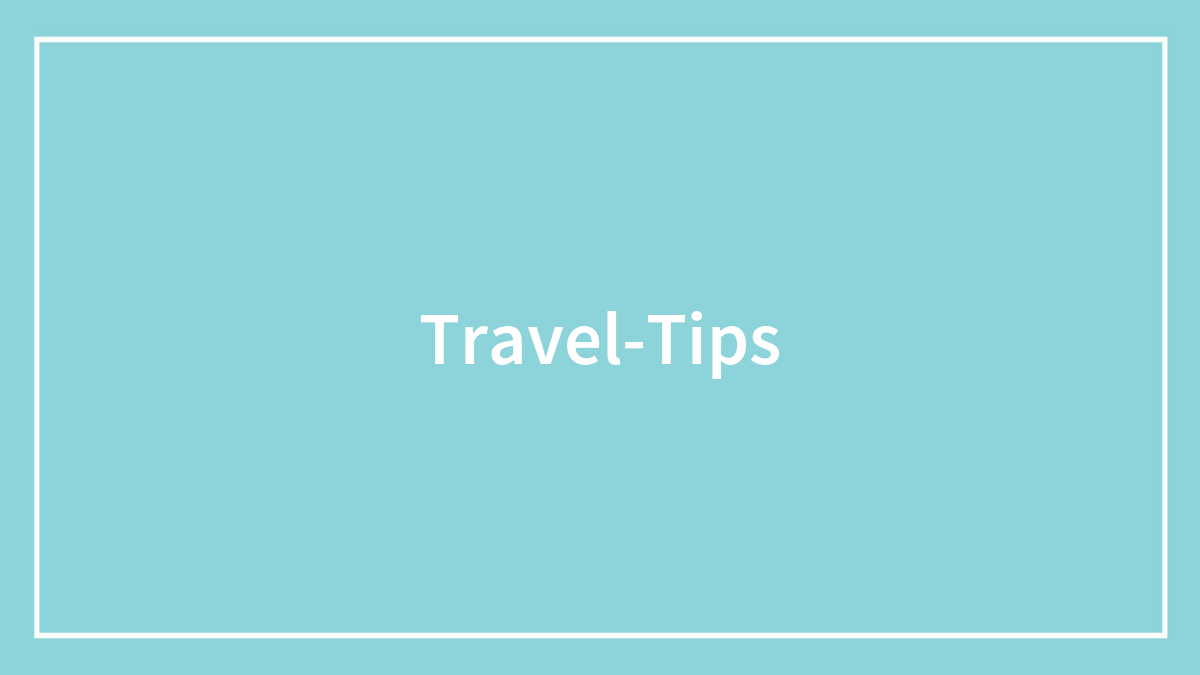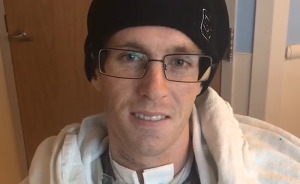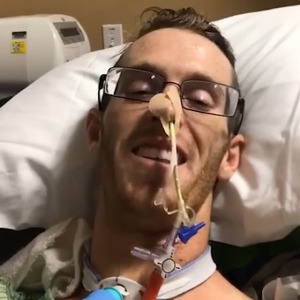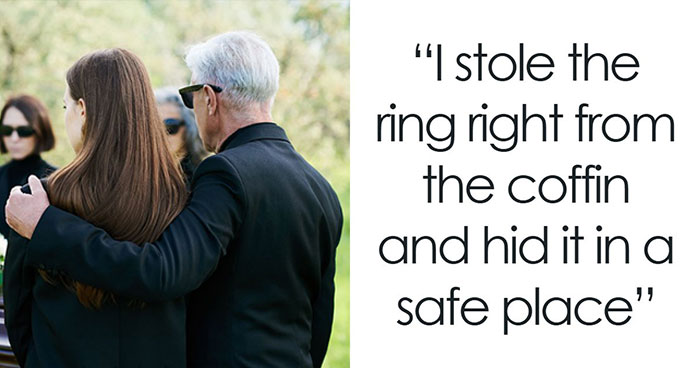After a couple of years of a universal pause on travel, it sure is good to be back on the road. Traveling is one of the best presents you can give yourself, so anytime you can afford to go on a trip, do it. One thing I have never heard anyone say is “I wish I traveled less in my lifetime.”
But whether you are a seasoned traveler or just planning your first journey, before we go roaming the planet again, visiting old favorite places and discovering new ones, there are a couple of things we should never forget. Traveling in general, but especially traveling abroad, is a pleasure, and like any other pleasure, it should be taken seriously and with a certain share of responsibility to make sure you get the most out of it.
First and foremost, take care of your safety, especially if you are traveling alone. Don’t be afraid to go on adventures, but assess them critically. Safe travel is a guarantee that you will want to do it again next time, so don’t neglect basic common sense.
Another very important thing is comfort. It consists of a lot of aspects, but one of them that people often fail to realize is learning how to travel light. You will always – always! – end up using fewer things than you thought you would when you were packing. Remember this and don’t make your life harder by having to drag a heavy suitcase around.
Below we have collected some travel tips from experienced travelers that you should know before getting ready to check a new destination off your travel checklist. If you have any other useful recommendations, share them with fellow travelers in the comments below. Wishing you safe travels and a lot of fun on the road!
This post may include affiliate links.
Try new food. It's always nice to try local food and experience a new taste.
I can never understand travellers who fly half way across the world just to end up eating at McDonalds. I understand allergies / medical conditions that would make you hesitate, but otherwise go and try what the locals offer!
Use a flight comparison tool. You can use Skyscanner. It offers you every flight combination applicable to your desired departure and arrival destination.
Any recommendations for anything other than Skyscanner, fellows? I have nothing against, just curious if you have your fav sites.
Download offline maps for your chosen country. When you are not sure if there will be an internet connection, it is better to be prepared. Or if you don't want to drain your battery.
Make extra copies of your passport and important documents. It is good to have a copy of your passport, you can mail a copy to yourself.
Locals don’t eat out every night and neither should you. Go grocery shopping. It will save you a lot of money.
Respect local culture. Make research about local traditions and culture. Try to get to know people better and respect their laws.
Don’t go into debt. Don't go beyond your means, because you will regret it once you return to your normal life.
Yeah so, took out a loan to take family to see Machu Picchu/sacred valley in Peru back in 2018. Just paid off the loan. Don't regret it at all.
Let someone else know your travel plans. Let your friends or family know where are you heading, so they could help you in case something goes wrong.
Pack light. You won’t need as much as you think. It is better to create a list of the essentials and cut it in half.
Are you suggesting that taking my wedding dress along is a tad bit much?
Travel by yourself at least once. You will become more independent and learn how to be comfortable with yourself.
Hell no. I'm a woman and I've traveled more than enough to know that traveling alone is a terrible idea. (Of course I'm not saying to not take a flight alone - I mean going somewhere that you don't know the area and/or don't know anyone there) It sucks but that's the reality of the world we live in.
Get vaccinated. Many countries require you to get vaccinated in order to visit them. take care of your health, because it is not fun to get sick in a foreign country.
Don’t compete with other travelers. Some people may brag about where they’ve been, and what they’ve done. But you have to remember that traveling is for you and don't let anyone pressure you.
Use local transport to save money. It’s always fun to use local transport and the cheapest way to get around.
Get travel insurance. Travel insurance is the most important thing you get. In case something goes wrong you don’t want to be out thousands of dollars in bills.
Be patient. There is no need to rush, you will get everywhere at the right time. Just enjoy your journey.
Be respectful. When something doesn’t go your way just stay calm, locals will try to help you but they might not understand you due to the language barrier.
Save the address of your accommodation on your phone. If you get lost, you can show someone on Google Maps where are you staying.
Book flights 2-3 months in advance to get the best price. Don’t drive yourself too crazy trying to get the absolute cheapest fare.
A smile goes a long way. A smile breaks the ice between people and it can ease uncomfortable moments.
Move your feet and legs regularly on long-haul flights. Get flight socks especially if you have blood clot disorders. Also, moving your legs will help you to reduce swelling.
Listen to your body and know when to rest. You might feel overwhelmed and tired. It is important to listen to your body and relax, give yourself a break.
Take extra socks. Especially if you are going hiking, it is good to have enough pairs of socks. You can take an extra of those.
Make sure to use no-fee bank cards. Get a credit card and debit card that doesn’t charge a foreign transaction fee or an ATM fee.
Learn basic phrases in the native language of your destination. You don't need to be fluent, but it is good to know basic phrases. It will make your interactions easier and the locals will appreciate this.
Carry emergency cash. In case something happens. You might not be able to find an ATM, so it is good to have some cash in your wallet.
Let your credit card company know you're traveling so they don't block out of country purchases. Know the exchange rates before you leave so you can calculate what will be charged to your card. Keep a SMALL amount of cash (in the correct currency)on hand for emergencies. You can always cancel your credit card but you'll never get your cash back if something goes wrong.
Book your tickets online. Companies sometimes offer a discounted price when compared to buying in person.
Allow at least 1.5 hours between connecting flights. You don't want it to be long, but you also don't want it to be short, so you wouldn't miss your next flight. You will have enough time for snacking and there will be no reason to run to a different boarding gate.
Always pack a sarong. It is required at a lot of religious sites.
This! Be respectful at all times and know what you'll need to bring so you are able to dress accordingly. For example, no matter how hot it is, your knees and shoulders must be covered at The Vatican Museum or the Roman catacombs. Places of remembrance, like Auschwitz or Dachau, may not have strict dress codes but you should dress appropriately and respectively. Use your head and don't be "that guy/girl"
Hire local guides. This is a good way to support the local economy. Plus it will help you to save your money and a good way to make new friends and understand the culture.
Don’t put all your money/bank cards in one bag. It is better to separate your cards into different bags, in case if one will be missing, you'll have another one.
Traveling with a friend or partner is always cheaper. You can split the bills and cost of living with your friend and partner to save some money.
Carry a basic first-aid kit. Add in your first-aid kit band-aids, antibacterial cream, and ointments for minor cuts and scrapes. It is better to be prepared for an accident.
Keep your guard up. It is good to be open to people, but don't forget that not all of them are good. So be careful and don't get into suspicious or uncomfortable situations.
Get a camper. Vanlife can be not for everyone, but it is good to try if for once. It offers flexibility and enjoyment.
Campers got extremely popular during the pandemic, and paradoxically they can get way more expensive than budget hotels. Compare your options before settling for one or the other :)
Step out of your comfort zone. Make a small step, so new exciting things happened in your life. Do something, you were scared to do at home.
Shoulder season is the best time to travel. It will be cheaper and there will be fewer people and the weather is usually still great.
Don’t be afraid to use a map. Don’t be afraid to use a map or ask for directions and look like a tourist.
Ask hostel staff for information — even when you aren’t staying there. Most hostel workers are local, so they know the city very well and can give you advice about where can you eat cheaper.
When you check in to the hotel, don’t be afraid to ask for an upgrade. They have a lot of flexibility when it comes to assigning upgrades at check-in.
Never eat in a touristy area or near a tourist attraction. The food there is usually expensive, so it is better to find a place somewhere further. It will be cheaper and not that crowded.
Be open to strangers. It is good to connect with someone, who is just like you wandering around. You might make some good friends.
Avoid taxis. They are not on the budget, try to avoid them, unless you don't have another choice.
Use points and miles for free travel. Collect points and miles through your everyday spending so you can get free flights, accommodation, train tickets, and other forms of travel.
Take photos of and with people. It will be a nice way to freeze the moment and return to it later. You’ll want to look back on those days.
Start preparing for your trip at least 6 weeks before you go. Some visa applications can take up to 6 weeks. Also, you will have enough time to do vaccinations if it is needed and get all stuff done before your trip.
Don’t bring more than 2 pairs of shoes. If you’re backpacking for a longer period of time, you don't want to pack too much.
Splurge every once in a while. It is an absolutely different experience. It is good to give yourself this opportunity to splurge, even if you are on the tightest of budgets.
Buy souvenirs and use the post office. Going to post offices in other countries can be an adventure. You can buy souvenirs and send them home.
Compromise. If you travel with someone it is important to listen to your partner and do what the other person likes.
Keep in touch with family and friends (but not too much!) It is good to keep in touch with your loved ones. But don't do it too much, because you might get homesick.
Use a VPN to maintain access to your favourite sites. VPN is a good way not only to secure your connection but also to give you access to websites that might be not accessible in foreign countries.
Buy a small backpack/suitcase. You will avoid packing too much stuff if you have a small suitcase.
Take an extra bank card and credit card with you. It’s always good to have a backup in case you get robbed or lose a card.
Don’t buy a money belt — they’re stupid. There is no need for this unless you actually like the way they look. Just keep a better look at your stuff.
When you go out, take only what you need. Don't take all of your stuff with you, in case of a robbery, you will have a backup.
Never get behind families. Usually, they have a lot of stuff, so the line might move slower.
Eat at expensive restaurants during lunch. They might offer lunch specials featuring the same food they would serve for dinner but at half the price.
Pack a flashlight. It will let you see at night, it is good to have one, especially during hiking.
Be frugal — but not cheap. Yes, try not to spend lots of money on stuff you don't need. But don’t miss out on great experiences, think wisely before spending your money.
Get yourself a set of wheels. Renting a car gives you more flexibility. You can visit different interesting places in any time.
Plan your clothing for all the seasons you’ll be experiencing. If you know that you will pass through a variety of climates it is better to have clothes for each of them.
Carry hand sanitizer with you. Some toilets will not have any sort of cleaning facilities in place, it will be easy to pick up an infection.
Book a hotel/hostel that includes breakfast. It is one less meal you have to worry about paying for.
Always pack a towel. Many hostels offer towels but it is better to have your own small towel. You might need it at the beach or on a picnic.
A towel, it says, is about the most massively useful thing an interstellar hitchhiker can have. Partly it has great practical value - you can wrap it around you for warmth as you bound across the cold moons of Jaglan Beta; you can lie on it on the brilliant marble-sanded beaches of Santraginus V, inhaling the heady sea vapours; you can sleep under it beneath the stars which shine so redly on the desert world of Kakrafoon; use it to sail a mini raft down the slow heavy river Moth; wet it for use in hand-to- hand-combat; wrap it round your head to ward off noxious fumes or to avoid the gaze of the Ravenous Bugblatter Beast of Traal (a mindboggingly stupid animal, it assumes that if you can't see it, it can't see you - daft as a bush, but very ravenous); you can wave your towel in emergencies as a distress signal, and of course dry yourself off with it if it still seems to be clean enough. (It had to be done so sorry not sorry)
But don’t be afraid to get purposefully lost. It is good to wander around, you might find exciting places and dive more into the city rhythm.
Always visit the local tourism office. They can point you to free activities, special events happening during your stay, and everything in between. Also, they can give you tips about how to get to your destination.
Always carry a lock. Carry a small combination lock with you when you travel. If you stay in the dorm, you can easily lock up your stuff and worry less about it.
Don’t be ashamed to walk into a Starbucks or McDonald’s. You can use their restroom or free wifi.
Don’t fly direct. It can be cheaper to fly into airports close to your final destination, and then take a train or bus to where you need to go.
Always get behind business travelers when in security lines. They move fast since they are usually in a rush and travel light.
Lunchtime is the best time to visit historical sites. It is good to visit those places super early, late, or during lunch time, there will be fewer people there.
Use Meetup, the sharing economy, and hospitality websites to meet locals. It will allow you to meet locals and get off the tourist travel, plus save some money.
Take pictures of your luggage and clothes. It will help identify your luggage more easily in case of a lost and speed up the process of having your travel insurance reimburse you.
Don’t over plan your trip. Schedule a few things, try not to over plan it, and just enjoy your day.
Avoid TripAdvisor. It is fine when you need to know an opening hours or addresses. But it is not always have correct reviews.
Book refundable hotel rooms in advance. You can book your ideal accommodation months (or weeks) in advance. But if worst comes, you can cancel it and don’t lose your moneys.
Invest in some decent photography gear. For most of the time having your smartphone camera is enough. But if you travel for a longer time and want to capture the most of it, it is better to get proper DSLR and lens combo is more than worth picking up.
Consider starting a travel blog. It can be a good way to become self-employed and you might make profit out of it.
Or, ya know, keep a journal for yourself and not barf it all over the internet. Realistically, you're never going to monetize your trip. Travel bloggers already post the same things over and over and over again. Can you imagine if every person who took that same picture at the Tower of Pisa (you know the picture..we all know *that picture*) started a travel blog? LOL. Also, I realized while I was proof reading this that I just described instagram. So yeah, journal for yourself and to share with your friends and family if you feel inclined. Travel loses so much of its meaning when you're focused on creating content and not on creating experiences for yourself. Ugh, that got super preachy when all I am trying to say is that you should do what you'd like, however you'd like. Just don't do it with main the focus on getting paid.
Use packing cubes. It is a perfect way to maximise the space in your suitcase and organise everything as well.
Choose tours wisely. Make sure you go with a responsible company. Don't be afraid to ask questions, so you could find out new and interesting information.
Give back. Try to be more involved and give your journey meaning. You can do it through volunteering, raising money, or visiting a project.
Sunrise is better than sunset (most of the time). Getting up early can be hard, but it defiant worth it. Don't miss the opportunity to catch the beautiful sunrise.
Don’t put yourself at risk – be smart. Don't do something to show off, especially if you're not good at it. Hire a professional, if you want to try a new activity.
Always check under the bed when leaving a hotel room. Some stuff might fall and you don't even notice this, so be sure to check if there is nothing important under your bed.
Slow travel is better than fast. You will feel more relaxed and really immerse in a new culture and way of life.
Plan for the unexpected. Imagining "what could go wrong" and preparing for it, can really boost your confidence.
Couchsurfing is a great low-budget accommodation option. Couchsurfing is one of the good ways to see the place from the local perspective and meet new people.
If you’re still a student - don’t forget your student card for discounts. You can get some great discounts with your student card.
Google translate can be useful when you’re struggling to communicate. Google translate can save you if you don't know a foreign language well enough or don't know it at all.
Bring a power bank with you when on long day trips. Your phone battery can drain pretty fast if you are using your phone for navigation or taking photos with it.
Take an empty metal water bottle through airport security and fill it up at your gate. It is a good way to save money and help the environment.
Take free walking tours. These tours will give you a good orientation and background of the city you are visiting.
Get city attraction cards. A city pass is going to save you money on admission if you want to visit a lot of museums and other attractions in a short period of time.
Sign up for flight deals. Sign up for airline newsletters, since that is where they will announce their sales. Flight tickets are usually the biggest expense.
Bookmark places on Instagram to visit. Instagram is a nice place where you can find unique and upcoming spots to visit.
Compare tour sites before booking (Klook/Gyg/Viator). You can pick the price that is the most suitable for you.
Check into your flight as soon as it opens to get seats together. Airlines can tell you the exact time their check-in will open for a flight. In this case, you can sit next to your friend or partner.
Don’t bring lots of hair products/body wash products with you. Most hotels and hostels will provide you with these, so there is no need to pack them with you. But it is in case you don't have a special skin condition.
Bring extra memory cards. It is all about creating memories, so if you don't bring your laptop, it is better to bring extra memory cards with you, so as to not miss a good shot.
Carryon's care package for the plane. In case your luggage gets lost, it is good to have most of your essentials in your carryon.
Always make the bed. Some of your things can slip under the sheets, so making your bed can help you to spot it and don't lose some of your items.
A fight doesn’t mean the end of your relationship (or friendship). Traveling with someone can be stressful. Don't be too proud to apologise.
Make sure your phone is unlocked to use local sims. It is the easiest and cheapest way to stay connected. Speak with your phone provider to find out if your phone is locked or unlocked.

 Dark Mode
Dark Mode 

 No fees, cancel anytime
No fees, cancel anytime 










































































